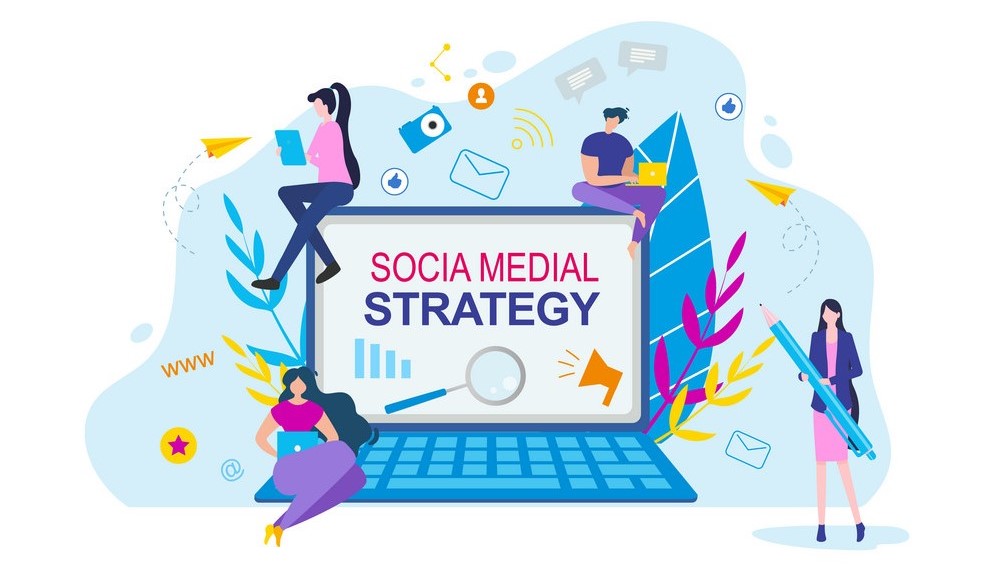Semalt: Social Media Strategies We Use To Boost Your SEO

As a website, you must do everything in your power to boost your SEO performance. Today, we need every resource at our disposal, and that includes using social media. Considering that over 3.96 billion users are active on social media, Social media marketing is a valuable SEO ally.
In this article, we will be revealing some of our social strategies that can help your website perform better when optimizing for search engines.
With so many active users, social media can actively impact your SEO performance and boost your ranking on SERPs. Unfortunately, too many marketers still see SEO and social marketing as two different things, which isn't the case.
What Are The Effects Of Social Media On SEO
The first thing you should know is that social media has no direct bearing on your SEO. Google itself isn't clear on how influential social media can be when it comes to boosting your ranking. Several studies and claims give a range of reasons why using social media is influential.
One particular study was published in mid-2020 from SEMrush, which shares data from over 23M+ social shares. The study found that social media sites didn't seem to have a tangible impact on SEO rankings. This study also found out that in situations where there was a spike in the number of social activities related to a brand, there was a relative spike in the traffic of that brand.
The problem with this is that correlation isn't precisely causation. So while we do believe that social media plays a role, its role isn't strictly responsible for a growth in web traffic.
We also believe that social media helps websites in areas such as:
- Content distribution
- Boost brand awareness
- It improves how long your content stays relevant
- Increases online traffic and online visibility
- Creates more opportunities for brand awareness and improves the brand's authority
In the next section, we will be showing you specific areas where social media helps with SEO.
Areas Where Social Media Supports Organic Search Marketing Campaigns
Create More Linking Opportunities

It is common knowledge that link building has become a must-have for the success of any site. Social media provides many opportunities to generate new links. When a brand can successfully pull through, they enjoy unprecedented volumes of links.
The reason most brands don't bother with using social media for links is that it is the most challenging benefit to enjoy. The difficulty lies in the path of the recipient because trends and methods change so quickly it's almost impossible to keep track. Most times, there must be some collaboration between the brand and the third party.
As an entrepreneur, you must understand that using social media means you rely on the social media platform to promote your content. This is why you can find fantastic content which has been researched and written in the best format, but it wouldn't see more than a few dozen views.
This is why links are vital on your social media posts. Most times, if one of your content is discovered, viewers can stumble on other links, which leads to less famous but quality content on the web.
It increases Brand Awareness An Positive Mentions
The Google Search Quality Rates Guidelines Document shows that if we were to consider the human factors for website reliability, brand mentions are vital. Considering that Google considers the human factor to be important, it is safe to assume that brand mentions can influence your SEO performance.
As you must have noticed, brand mentions are quite common on social media platforms. LinkedIn, Facebook, Twitter are social media platforms where you will find most brands. On these platforms, these brands have millions of followers, and they get to trend once in a while. With the names of these brands frequently appearing to new social media users, it is most likely that they will become more popular.
A survey on Twitter consumers, for example, shows that they enjoy as much as a 19% boost in consumer satisfaction.
There are also situations where a brand trends for something negative, and Google takes note of this. Google monitors the context of your online engagement to see if your brand benefits its users or if it puts them at risk. By understanding what people say about you, Google knows what to rank your brand for. Pay attention; we said, "What" you rank for and not "How" high you rank.
Your sole focus should be on providing positive user experiences and products, and your online representation will tell you whether or not you are. If you maintain a streak of positive mentions, Google and other potential users will consider your brand to be relevant.
Remember that it is easier to break trust than build it, and social media is an easy tool to use to do both.
Build partnerships
In its early days, building strong and meaningful partnerships on social media was easy, straightforward and usually ended on a positive note. However, as the number of users increases, it has become more difficult to find genuine friends.
Nevertheless, social media is still one place every brand should visit if they plan on building partnerships, especially when they are startups. Let's remember that the original purpose of having social media is to connect users, and they still excel at this function.
A social media relationship can be built on one of these three levels:
Brand Promoters:
These are active social media users who also happen to love your products or services. These users promote your brand for free, so you enjoy more brand exposure at no extra cost. Most loyal customers are happy to do this for the brand that provides the products / services they enjoy the most.
Organic Influencers:
These are social media influencers who aren't paid to promote a brand. These accounts usually have thousands of followers. Such accounts are considered the EAT of social media. A positive endorsement from these accounts usually comes with a positive reaction from the audience.
Strategy Partners:
These are non-competitive businesses and influencers within your industry who are willing to partner up and create content. In such situations, both you and your partner share both your audiences.
Conclusion:
Social media and SEO have been intertwined for decades. When they come together, they build your online business and complement one another.
Simply having a social media profile may not do much for your business, but when combined with SEO strategies, you see how beneficial having a social media presence can be.
Semalt can help you capture your target audience by combining social media and SEO. This particular combination is powerful, especially when designed by professionals. Contact us today and let us help you build your audience.